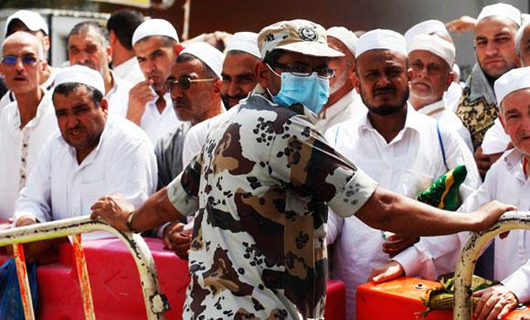
Riyadh, Sep 13: The Riyadh police department has urged local Haj pilgrims to deal only with registered companies to avoid losing their money to bogus operators.
The government has said it would severely punish agents operating without Haj licenses. “Such agents, if caught, will be subject to the maximum punishment,” the police stated.
According to the Ministry of Haj, it is obligatory for domestic pilgrims to contract with licensed companies.
In addition, pilgrims should have a valid identity card and obtain a vaccination certificate for cerebrospinal meningitis and other required vaccinations.
Pilgrims can determine the companies and establishments licensed to serve domestic pilgrims via the Haj ministry’s portal, the toll free number 8002444480, or the directory issued by the ministry, which includes their offices at the sacred sites.
Females can only perform Haj with a mahram — a male companion that they are related to. However, exceptions are allowed under certain circumstances, but evidence for this must be provided to the authorities responsible for issuing Haj permits.
The ministry stipulates that a person can only perform Haj once every five years. However, a man may be allowed to circumvent this rule if he acts as a mahram for a relative.





Comments
Add new comment